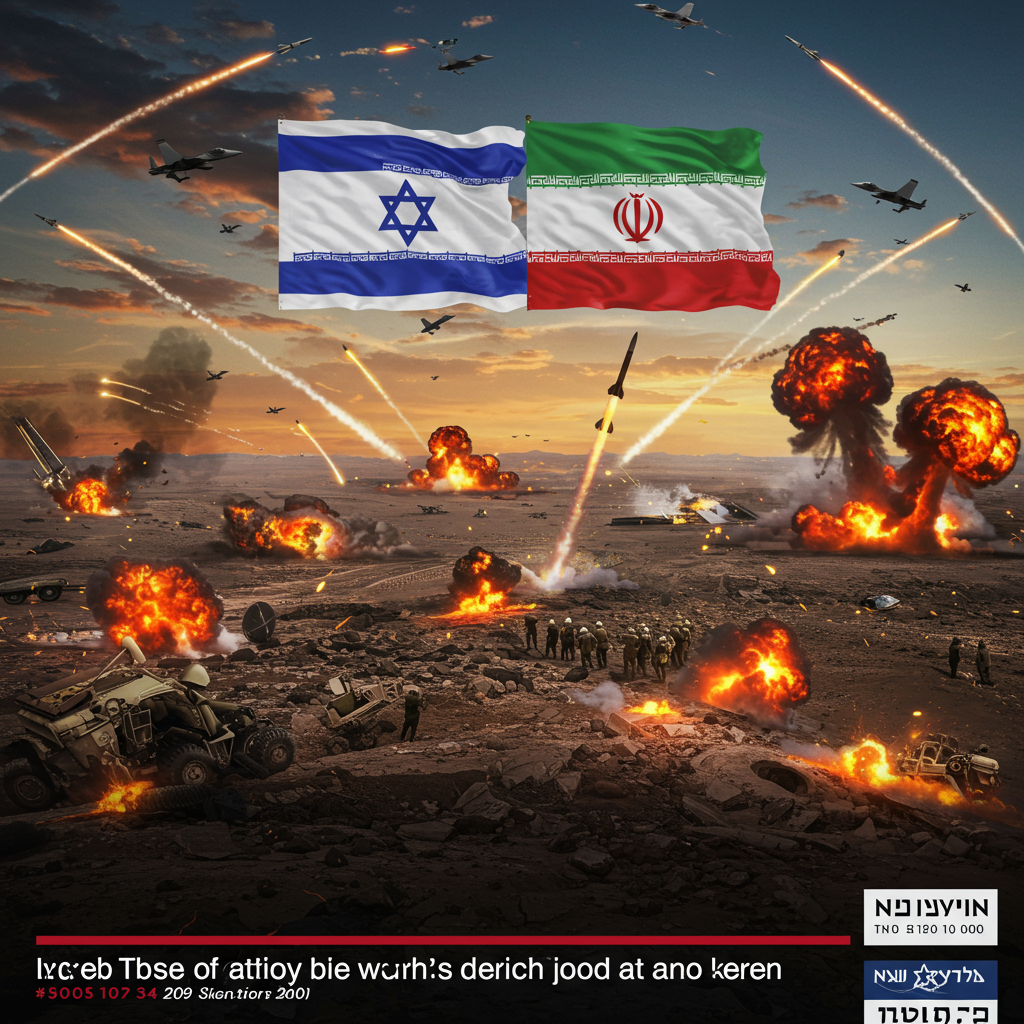Israel-Iran Conflict Deepens as Strikes Escalate
The volatile situation between Israel and Iran has intensified significantly, with both nations exchanging heavy strikes and regional tensions soaring. The latest surge in hostilities has resulted in a rising death toll and growing concerns that the conflict could broaden beyond its current scope, potentially lasting for weeks.
Recent days have seen extensive military actions from both sides. Israeli forces confirmed carrying out a series of precise, intelligence-based strikes deep inside Iran, targeting critical defence and energy infrastructure in and around Tehran. Specific targets included buildings linked to Iran’s Ministry of Defence, the Shahran oil facility, and importantly, sites alleged to be part of Iran’s nuclear weapons development program, including locations where Israel claims Iran hid its nuclear archive.
Iran has responded with its own barrages of missiles into Israeli territory. While Iran’s Revolutionary Guard stated these attacks aimed at military fuel production facilities, reports from Israel confirmed direct impacts on residential buildings and open areas, particularly in northern regions, leading to fires.
The human cost of the escalating conflict is tragically mounting. Authorities in Israel reported at least three fatalities prior to the latest intense exchange, with subsequent Iranian strikes adding four more deaths and several injuries. Meanwhile, Iranian officials reported a much higher death toll of 78, alongside hundreds injured, stemming from Israeli actions.
Nuclear Sites Targeted and Talks Cancelled
The targeting of alleged nuclear-related sites by Israel marks a particularly dangerous turn. This comes after Israel’s “Operation Rising Lion,” which reportedly struck Iran’s Natanz nuclear facility, triggering the current cycle of intense retaliation. Israeli officials have justified these actions as necessary to defend against a clear threat and prevent Iran from obtaining nuclear weapons, asserting that the world cannot afford to ignore Iran’s nuclear ambitions.
Adding to the crisis atmosphere, planned indirect nuclear negotiations between Iran and the United States, scheduled to occur via mediator Oman, have been abruptly cancelled. Iran’s foreign minister deemed talks “unjustifiable” amidst continued Israeli attacks, while a senior US official expressed a desire for the talks to resume eventually. China has voiced strong concern, warning that targeting nuclear facilities sets a “dangerous precedent,” highlighting the deep international anxiety surrounding the conflict’s trajectory.
Political Undercurrents: Netanyahu’s Shifting Position
Compounding the regional instability is the notable domestic political impact of the conflict within Israel. The intense confrontation with Iran appears to have provided Israeli Prime Minister Benjamin Netanyahu with a significant, if potentially temporary, political lifeline. Just days before the “Rising Lion” operation, Netanyahu’s government faced a potential collapse due to internal disputes, particularly concerning military service exemptions for ultra-Orthodox men, bringing opposition parties close to toppling him.
However, in the immediate aftermath of the strikes against Iran, the political landscape shifted dramatically. Key opposition figures, including Yair Lapid and former Prime Minister Naftali Bennet, publicly supported the military action, temporarily setting aside their strong criticisms of Netanyahu.
Despite this initial show of unity, critical voices suggest that the timing and potential escalation of the conflict are intertwined with Netanyahu’s domestic political vulnerabilities. Some critics allege the prime minister may be risking a broader, potentially unnecessary regional war partly to divert attention from domestic failures, coalition instability, and the persistent public dissatisfaction regarding his government’s accountability following the events of October 2023. This framing portrays the security crisis as a maneuver to secure his political survival amidst mounting unpopularity and poor poll numbers prior to the strikes.
Outlook: Weeks, Not Days, of Conflict
Officials on both sides indicate that the current level of hostilities is far from over. Israel’s operation is reportedly expected to continue for “weeks, not days,” suggesting a sustained period of elevated tension and potential further military action. Iran has also threatened to intensify its attacks if Israel does not cease hostilities.
With diplomatic avenues seemingly closed for the moment and both nations exchanging increasingly heavy blows, the region remains on edge. The targeting of sensitive sites, coupled with the political dynamics at play, underscore the significant risk of this conflict escalating into a wider regional conflagration, the ultimate cost of which remains dangerously uncertain.



